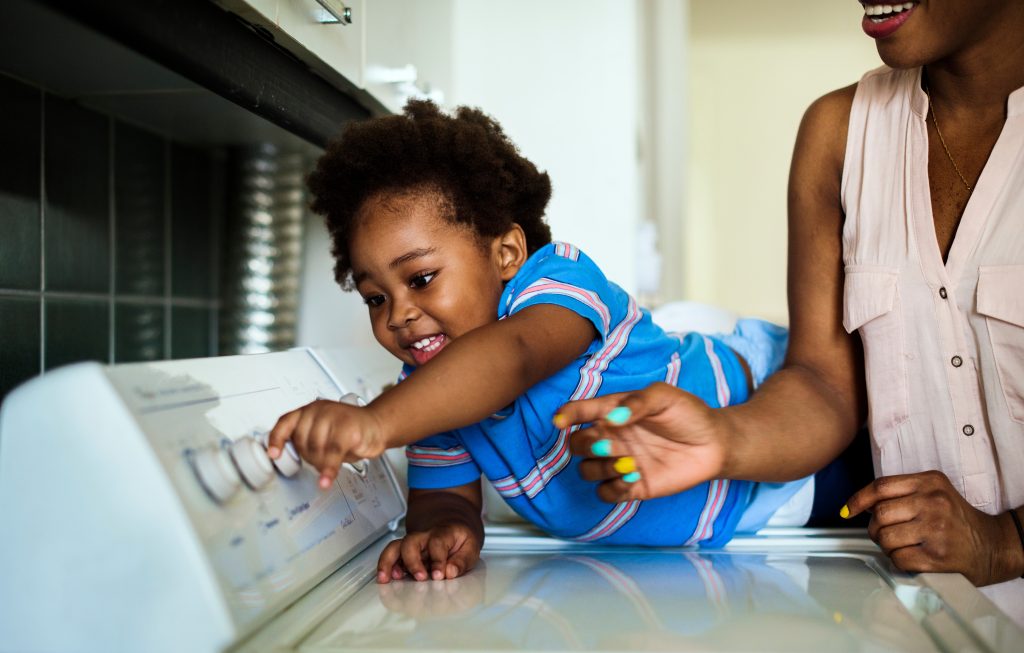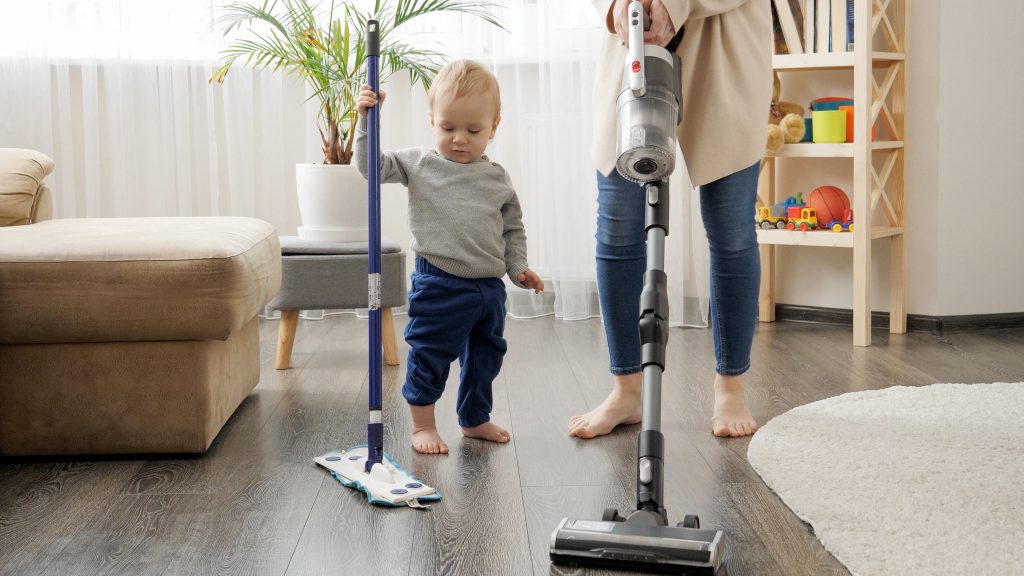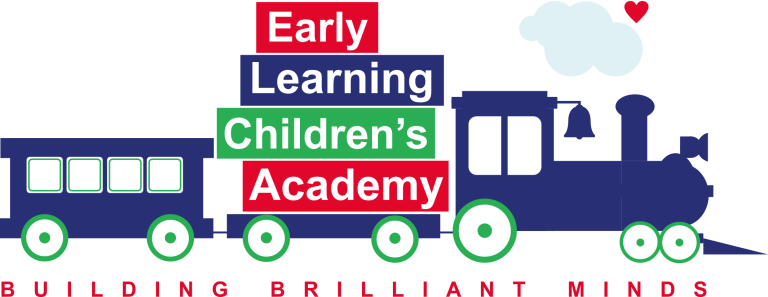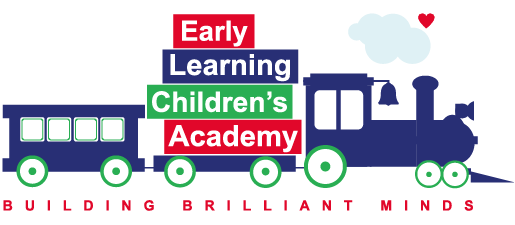Look, Mommy—no more blocks! All put away, all by myself!
Whatcha doin’, Daddy? Picking up sticks? Can I help?
The answer is yes, absolutely! Getting your kids involved in household chores is one of the best things you can do for them and for the family. Immediate benefits to youngsters include developing skills and learning the pride of accomplishment. Spreading tasks across the family teaches cooperation, sharing, and helps the household run smoothly. Long-term, kids who do chores are happier and more successful years later in life. Chores as a youngster definetely pays off throughout life.

When to Start? Early!
According to child development experts, most of us wait too long to get our kids involved in household tasks. Starting when children are toddlers takes advantage of the natural desire of 2- and 3-year-olds to be helpful. Plus, they love to imitate what you’re doing. Sure, they’re messy and inefficient and chores may not be completed to perfection. Doing things yourself is quicker and easier.
But extra effort and patience on your part makes your toddler feel needed, which is something we all crave. At a young age, kids are learning they matter, that their contributions are important to the functioning of the household. Their actions are part of belonging, making them an integral part of the family group.
Set Up Age-Appropriate Chores
How you go about getting very young children involved in chores makes a difference. You want to assign tasks that correspond to ages and abilities, breaking jobs down into kid-sized pieces. At 18 months a child can pick up toys from the floor and put them in a basket, but initially you want to work alongside to show them what to do. They’ll get the idea and take over soon enough. Kids thrive on positive reinforcement, so be sure to praise their successful efforts.
What can you reasonably expect your youngster to do and when? Between a 1½ and 3, toddlers can make worthwhile contributions and develop valuable skills at the same time.
- Put away toys and books. Setting up a place for playthings—a shelf for books, a box for toys—gives items a home. You can make a game of cleanup by separating cars in one bin and stuffed animals in another. Or race to see who can put toys away faster, you or your kid. Siblings can get involved too.
- Assist with laundry. Putting dirty clothes in the hamper, placing laundry into the washer or dryer, and folding socks and washcloths are well within toddler capability. Sorting and matching socks by patterns is great way to learn colors, develop hand-eye coordination, and strengthen motor skills.
- Care for a pet. Pet-related chores teach kindness, responsibility, and respect for living creatures. Toddlers can refill food and water dishes after you measure quantities, scrub the dog’s fur during a bath, and put new straw in the bunny cage.
- Help with meals. That includes picking out food at the store, carrying groceries into the house, and setting the table with spoons, napkins, plastic plates, and cups.
- Straighten the bed. Pulling up sheets and blankets, smoothing wrinkles, and fluffing pillows are well within the abilities of toddlers. The bed may still be messy, but that’s ok.
By the time they’re 4 to 5, preschoolers have perfected and should continue to do toddler-level tasks. They’re also ready to take on more responsibility around the house.
- Wipe the table, bathroom counter, and other surfaces. Using non-toxic wipes, cleaning clothes, or old towels to remove crumbs, splashes, and spills after meals, teeth brushing, or from floors helps keep things neat and tidy, making the house more pleasant for everybody.
- Sweep, mop, vacuum, and dust. A hand broom and dust pan make great preschool-size tools, and kid-specific sponge mops and cleaning supplies are available at toy stores and elsewhere. While a full-size vacuum may still be too big, a hand vac works just fine. Give your child a small area to clean and let them go at it. Pull an old, clean sock over your child’s hand for dusting, and point out chair legs, shelves and tables, and other low areas that need attention. With every motion, your kid is building all-important gross motor skills.
- Load/unload silverware and unbreakables from the dishwasher. Teach your youngster to clear utensils from the table, how to load them into the dishwasher, and where to put them when they’re clean and dry. Such work perfects hand-eye coordination and encourages organization and decision-making. Just be sure to remove sharp knives and breakable objects before your preschooler tackles the job.
- Pick up sticks and yard debris. Kids need to be outdoors every day, moving and exercising, and they can be of real assistance when it comes to gathering stuff from the ground. Provide a trash bag or wheelbarrow for easy disposal and make a game of seeing who can collect the most.

Looking around your home, you’ll see plenty of other tasks your children can assist with. Start with three or four easy jobs that you know your child can do. The complexity of work can increase with age and skill development, although you do want to be careful about setting up expectations that are overwhelming and beyond a youngster’s capacity to do. Feeling helpless leads to frustration and refusal to do future chores. Also resist the temptation to follow behind your child and perfect their work. That sends the message that he or she isn’t good enough. On the other hand, raising the bar slightly is a good thing; kids grow their skills by meeting a challenge.
Lessons That Last a Lifetime
Chores are good for kids. They’re good for grownups too. Research consistently shows that children who do chores from an early age turn into happier, healthier, more accomplished adults. In fact, a 20-year study at the University of Minnesota indicated that the single best predictor of future relationship success with friends, family, romantic partners, and on the job is doing chores as young as 2 years of age. A decades-long Harvard study found that adults who did chores as kids ended up being more independent, better able to participate in collaborative groups, more aware of the importance of hard work, and more appreciative of their roles as valuable members of a community. The sense of mastery, self-esteem, and confidence that comes from working at chores as a youngster pay off throughout life.

